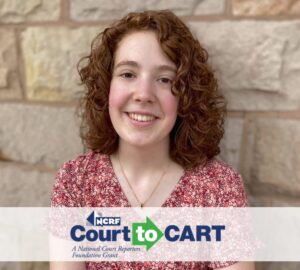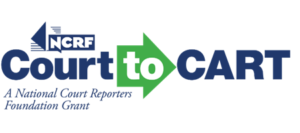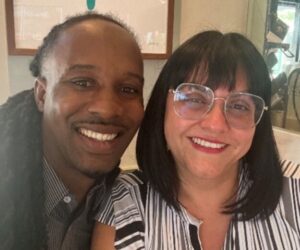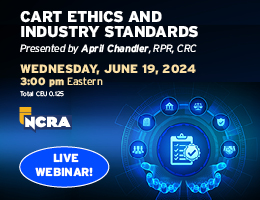CART captioners are everywhere! Whether you’re in a stadium where thousands of fans cause decibel-breaking records, observing the greatest deliberative body in the world, or watching your favorite television show or movie, NCRA-certified CART captioners are hard at work.
Captioners provide instant translation of the spoken word to text, as well as concise, objective descriptions of scenes, settings, body language, and more for those both requiring further accommodations or those who simply wish to have a more detailed understanding of what is happening in addition to providing a written record of the event.
With the emergence of video conferencing for both school and work in recent years, the demand for certified CART captioners and closed captioning has risen, expanding the demand from the hard of hearing or auditory processing individuals to a broader audience. In a research study conducted by Oregon State University, data collected from 2,124 student participants from across 15 public and private colleges and universities shed light on the rapidly growing usage of video in higher education:
- 71 percent of students without hearing difficulties use captions at least some of the time
- 66 percent of ESL students find captions “very” or “extremely” helpful
- 75 percent of students who use captions said they use them as a learning aid
- 52 percent of students who use captions said captions help as a learning aid by improving comprehension
- 15 percent of students don’t know how to tell if a video has captions
- The most common reason students use captions is to help them focus
- The most common reason students use transcripts is as study guides
In a recent interview with the JCR Weekly, Lois Boyle, RMR, executive director of Access Virginia, said that “lack of understanding” as to what open captions are, what CART is, and the varied ways to provide effective communication for varied forms of sensory loss and the necessity of accommodations is the biggest obstacle for expanding accommodation.
As the organization that supports live broadcast and CART captioners, NCRA has developed working relationships with organizations that support people who are deaf or hard of hearing. These include the Deaf and Hard of Hearing Alliance and the Friends of the Congressional Hearing Health Caucus. Captioners use cutting-edge technology to bring the spoken word to text accurately in real time. NCRA members are highly tech savvy as they rely on the latest in technology to get their jobs done.
NCRA remains committed to supporting every member in achieving the highest level of professional expertise.














